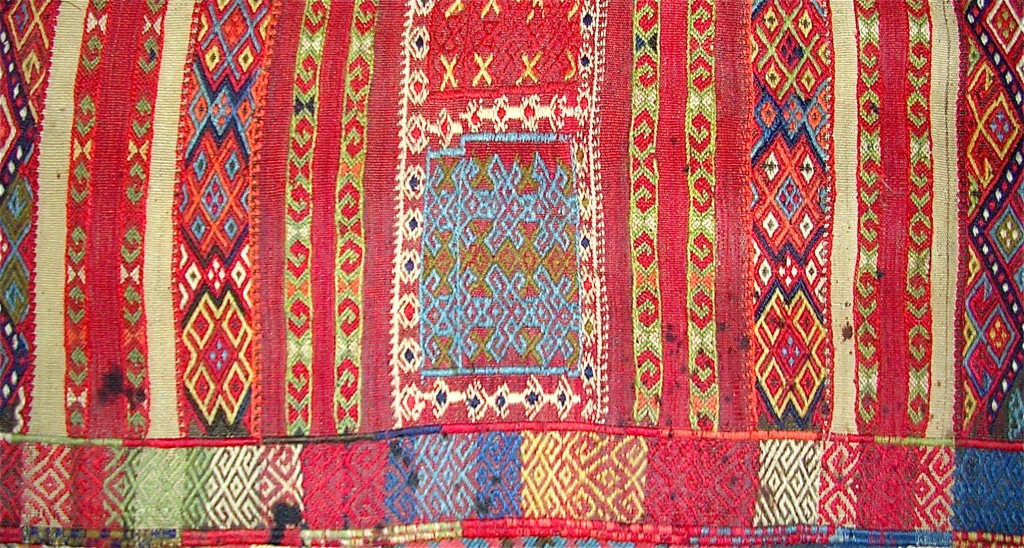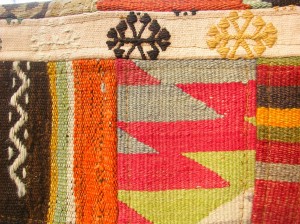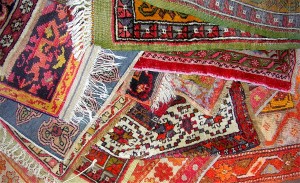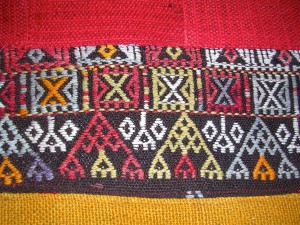Honor, Violence and the Girl Effect
 “They are young, with burning blood” – a line from Iffet
“They are young, with burning blood” – a line from IffetIffet is the name of the main female character in a popular series on Turkish TV; her name translates to ‘chastity’. In modern day Istanbul, a working class guy torches his own taxi in manipulative atonement after Iffet rejects him for date-raping her. Drinking and economic troubles ensue for him, yet despite his baggage, she eventually forgives his behavior. No thought that his bad luck may be karma for his shady character. The latest episode cliff-hangs as her traditional widower father overhears the girl tell her younger sister she’s pregnant. She should feel “safe, protected and free from violence in her home and family setting”. “In reality, however, it is in these places that girls often experience violence and abuse”, according to a 2009 UNICEF study on violence against girls. Will Iffet live through the next installment?
On another channel, Firar, meaning desertion or escape, takes place in present day Mardin, in the Turkish Southeast. A longsuffering wealthy young widow is overcome when she smells the scent of her dead husband on the married woman servant whom he raped, then seduced. This transgression leads to his death at the hands of the servants’ enraged husband, aptly named Adil, or ‘fair’. The servant is kept locked in the cellar after the murder not by the men, but the women of the household, is beaten and cursed by them, with no empathy shown for her weakness against power. No thought that the dead man’s disgusting behavior would have consequences. Predictably, his brothers set out to avenge the death. At least the widow screams, “What did I ever do to you?” as she rips his shirts apart before turning the scissors on herself.
These are tales of intense violence against females of all ages, fired by a sense of male entitlement to whatever he wants. What a culture watches on television not only reflects but reinforces cultural and social mores. Programming sex and violence as means to capture viewers is a time-honored marketing tool in all cultures, though there is no honor to it.
Yet I’m wondering whether the message the writers of these series ultimately send will turn out to be more than a confirmation of such behavior. Are they only offering titillating escapes from the reality of daily violent attacks in the Southeast, or the pro-Kurdish BDP Party taking seats in Parliament after an extended boycott in time to influence a new constitution, or the Turkish leaders’ quest for national admiration as a role model for the rapidly evolving Middle East?
Perhaps the writers will surprise me and plot to teach the ultimate perils of violence against women. They have the opportunity to change minds and traditions by showing the high cost to society. Official records for how many people, predominately women, die yearly in honor killings vary; such information is suppressed or goes unreported. Nearly 10 years after a well publicized murder of a young Swedish woman of Kurdish origin, or another in Mersin this year, these dramas continue, one by one, drops in a water torture slow death of rights at the reactionary hands of revenge. There are strong role models for women here, those who struggle and prevail in their work for change. I know it will take much more work from all of us to influence evolution. But I have personally witnessed encouraging small signs, not quite a year after I first wrote about the horror of honor killings.
 “We won’t be anyone’s honor” – mourning women at Hatice Firat’s funeral
“We won’t be anyone’s honor” – mourning women at Hatice Firat’s funeral
As the new primetime TV season plays out, in real life, a girl and boy 16 and 18, from the coiled branches of the same extended family, fall in love. Even among traditional families with origins in the Turkish southeast, chastity does not always figure in: the girl becomes pregnant. The couple runs away from the small Aegean town in which they grew up, to the anonymity of big city Istanbul. Do they stay in an out-of-the-way hotel? No, since hotels outside the touristic center can be quite strict about unmarried couples sharing a room, and they are too ashamed to try anyway.
Shame is a strong motivator here, the other half of honor. The writer Elif Safak explains the difference between men and women, in an excerpt about violence in Turkey’s strict patriarchal society. The fact that she uses textiles as metaphors makes her definition all the more vivid to this craftivist:
Since my childhood I have heard more than once old women advising young women to be modest. Traditionally, females and males are thought to be cut of different cloth. Women are cut of the lightest cambric whereas men of thick, dark velvet. The colour black doesn’t show stains, unlike the colour white, which reveals even the tiniest speck of dirt. A woman who is believed to have lost her modesty is at times worth no more than a chipped coin. There are always two sides of the coin: dignity or disgrace, and little consolation for those who get the wrong side.
A potential ‘blood war’ ensues. The couples’ brothers and cousins are forced into leaving their work and families to search for them, pressured by family elders into divulging anything they learn. Cell phones burn as the extended group holds 21st C tribal council on what should be done. The couple are discovered at the suburban home of a sympathetic relative. One would think their parents would be relieved they turned up safe after their escape. But no – the father of the girl decides he must kill the father of the boy, “for not controlling his son”. It’s quite a twist to talk of killing a father for the sins of his son. The victim of an honor killing is more typically the girl, for anything talking to boys, or in this case, being underage, pregnant and running away. Life-changing actions by someone so young, but retribution by violence starts a downward death spiral that will leave families ripped apart.
While these threats are coming from the older generations, the younger members are more forgiving, thinking beyond the immediate anger and sense of betrayal. They learn the girl wants to marry the boy, continue her studies by attending university to become an accountant and to have their child; the boy agrees. They know it will be tough, but they want to determine their own fate. They ask for their families’ support. More honor in that resolution than killing anyone, the youth of the family concur. Though a by-standing, mid-30’s relative says, “It’s not possible to change how our people think”, his contemporaries and those younger do not agree with this bleak assessment. Two weeks now after the couples’ request, the families have gathered face to face in Istanbul, and no one has come to harm. People are talking. More importantly, they are listening to each other. There may be glimmers of hope.
Gandhi’s truth that “An eye for an eye leaves the whole world blind” comes to mind when I witness these events, whether fiction or reality. Balancing honor and equality against dominance and violence is like standing a coin on its side – eventually one side ends up. But maybe the lessons of these tales are emerging: That families can learn that violence does not bring honor, only more violence and senseless loss. That women must stand up for each other against any type of coercion. That a man’s sense of entitlement to take whatever he wants is mistaken. A woman has the right to choose her own fate, to determine the cut of her cloth.
You don’t have to be an expert to help educate about the importance of a girl’s wellbeing in any society. You just need passion, concern and a blog. The more we speak out, the more who will listen.


While just across the border, abuse is rising: “Here is man’s world. If you are man, Kurdistan is a nice place, but if you are a woman, it is a tragedy.”http://www.kurdishglobe.net/display-article.html?id=FCA04F9BD289C1663DBDF0C9A43AFA61
I live in Canada and I’m Canadian but my husband is Turkish……..we watch every Turkish TV drama there is……Iffet and Firar are some of my favourites this year…….and I mean we are watching about 10 or 12 at the moment every week.. I can’t believe how some of these women are treated. I get upset watching these shows……….the abuse is disgusting.
True, Erica, some are very tough to watch, though there always seems to be a bad ending for the worst of the abusers. Meanwhile, this commercial is playing here at nearly every break: http://www.youtube.com/watch?v=9Jca31ziWk0 so there is an attempt to educate in the midst of sex and violence for ratings.
And I am amused to watch the adapted-to-Turkish-culture version of “Desperate Housewives” which works pretty seamlessly into Istanbul life…
Great blog, great writing on such an important issue. Spas!
Thank you Tara! The family I mention is STILL talking…change takes time, I suppose.
This post moved me. Well done Catherine.